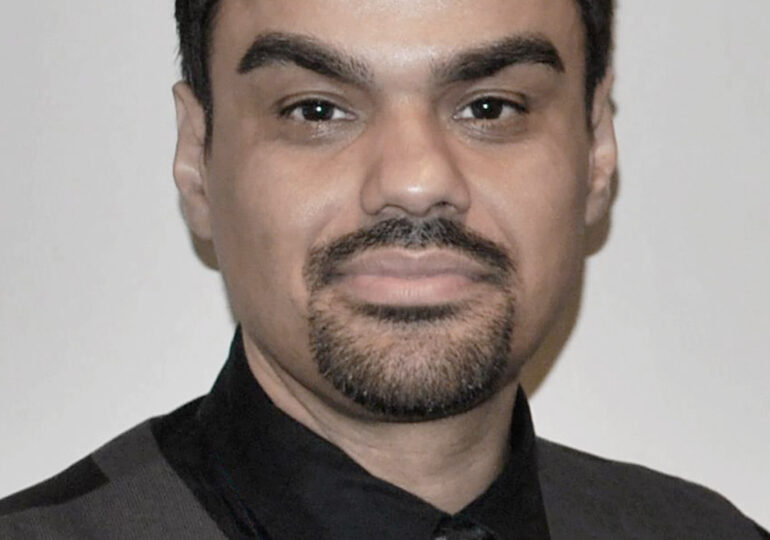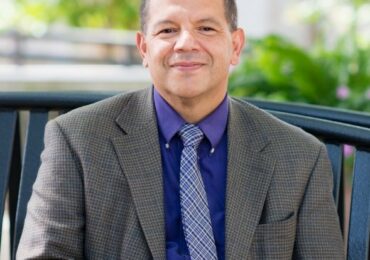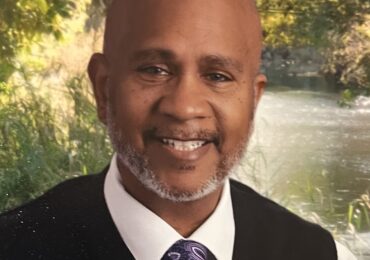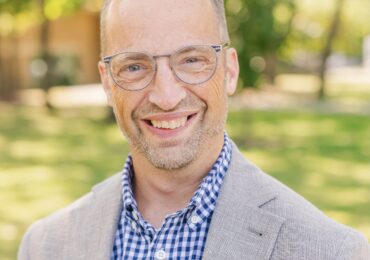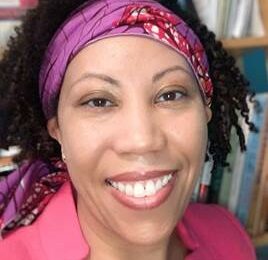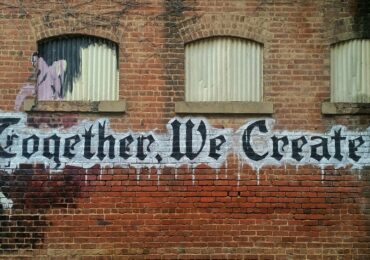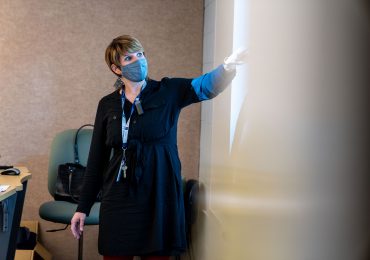On October 12, 2022, Rev. Ben Torres led a training session for Trinity faculty and staff on Hispanic Heritage & DEI. The workshop was one in a series presented by Mosaic, a Trinity initiative for diversity, equity, and inclusion. Mosaic is led by Dynitta Lieuwen, Special Assistant to the Provost and Chair of Staff Council, and Dr. La Tonia Winston, Director of Learning and Teaching Success and Assistant Professor of Education. The Center for Teaching and the Good Life is privileged to partner with Mosaic for this series. 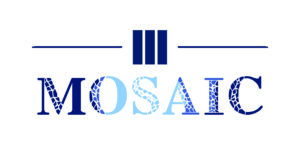 MP. Thanks very much for talking with me today, Ben. It’s a pleasure to have you here at Trinity and to have a chance to talk with you about your work in relation to both Mosaic and the Center for Teaching and the Good Life. Could you please begin by telling us a bit about how your background and training led to your work in diversity, equity, and inclusion?
MP. Thanks very much for talking with me today, Ben. It’s a pleasure to have you here at Trinity and to have a chance to talk with you about your work in relation to both Mosaic and the Center for Teaching and the Good Life. Could you please begin by telling us a bit about how your background and training led to your work in diversity, equity, and inclusion?
BT. I grew up near Cleveland, OH, in a very culturally diverse area. What I didn’t understand at the time was that this was really unique to the area. I just thought that was the norm. But then I went to Kent State University, and I noticed that people from the majority culture that I was really good friends with growing up distanced themselves from me. And I didn’t understand why. It was confusing, hurtful, and I lost some good friends because of it. However, one of my high school teachers was attending Kent State, working on her Ph.D. One evening, we sat down, and she just explained the way of the world to me. Everything she explained to me was on target. She gave me a framework to help me navigate the situation as best I could, but it was a difficult adjustment for me.
In college, I majored in graphic design, but it was significantly different than what it is today. I wanted to create art assets that were directly related to the entertainment industry. Back then, those doors were not as accessible, so I switched majors to the mental health field. I became a mental health counselor for the state of Ohio. The organization I was a part of only had a handful of men at the time. I was one of two Latino males in that organization. I am unsure why, but we were both given the most intense cases. While it was fulfilling work, the intense nature of the clientele led to high turnover. Because of this, I was looking for a way to take the edge off. I revisited my first passion and began submitting art and design work to major publishers. Eventually, I would get published, which led me to work for some major companies in the entertainment industry. One of the companies, a Fortune 500 company, offered me a job, and I switched careers immediately. It became pretty evident that there were huge disparities in many areas when it came to equitable treatment of melanated people. In this highly specialized industry, there were consistent racial microaggressions, assumptions of criminality, and assumptions of intellectual inferiority. It was incredibly toxic and stressful. Now mind you this was at a time when these things were not discussed. The attitude of the day was to just suck it up, you have to deal with it. To address these things would be harmful to your career. However, it was a transformative experience, because I had these great things happening on one end and these tensions on the other end, and I really had to learn how to find balance in an unhealthy environment. Leaning into my faith was crucial.
While in the process of developing movies and TV shows and traveling, God called me to become the young adult pastor at a local African American church. The church wanted to expand its ministry focus to address the growing diversification of the area. As a Puerto Rican married to an African American woman, I believed this was a great opportunity and made a lot of sense. So, I launched a multiethnic ministry, which grew. While it was a great period of my life, ministry has unique challenges, and it began to wear on me. After I moved to Chicago, I said, I’m never going to do that ever again. I’m done with ministry. But God had other ideas.
MP. Thank you for sharing those stories and perspectives. You already talked quite a bit about my next question, but perhaps you could tell us more now about your present life and callings. One of Trinity’s goals for all students, stated in our Foundations Learning Outcomes, is that they develop vocations that include, but extend beyond, career or work. So we talk about vocation as something that’s for all of life, not just a job. Thinking about family, community, church, etc., could you please tell us about a particular time in your life when you felt called by God into a new aspect of your vocation or new ways of thinking about your vocation.
BT. It started with my father and mother, who were amateur theologians. We would talk a lot about the Latino voice and question if it was evident in Scripture. Those interactions set the foundation for my interest in ethnic identity and the Imago Dei. After I graduated from Trinity Evangelical Divinity School and began dealing with various issues affecting my community, it became evident that Scripture says quite a few things about the ethnic voice. However, from what I have experienced, this is not taught in institutions or the local church body. I just made a pledge to the Lord that if I ever got an opportunity to pastor, I would emphasize what God emphasizes in Scripture. The simple truth is that ethnic diversity is intentionally designed to be an integral part of God’s ultimate plan. With that in mind, it was also clear to me that equitable treatment and intentional inclusion of others were also part of God’s plan.
I became senior pastor at a church close to the Illinois and Wisconsin border. It was a predominantly majority-culture church. We ran a food pantry that fed about 4,000 people a month. That was unbelievable. It was post economic downturn. It really informed the way I see diversity, equity, and inclusion. I developed a strong sense of equity because the church was near a wealthy community. We would see immigrants who had just arrived from other countries coming in for food while also serving formerly wealthy people who had lost it all. As a pastor, I realized it did not matter what their background was. I had to provide them with equal opportunity. I had to be impartial and provide food and minister the love of Christ to them.
I am currently one of the pastors of Christ Church of Illinois. The main campus is in Lake Forest, IL. The other three are located in Grayslake, Vernon Hills, and Highland Park. My congregation, Rev 7:9, is intentionally multicultural. Rev. 7:9, stands for Revelation 7:9, in which all the ethnic groups are around the throne worshipping God. We just want to be a snapshot of that, and, so far, we have been. The congregation is very diverse. God has really blessed it.
MP. Thank you. And you’ve already started answering my next question, too, but I’ll ask it anyway and you can decide where to go with it. How do you see your work in relation to diversity, equity, and inclusion as joined with God’s work in the world?
BT. Scripture is just replete with references to diversity, equity, and inclusion. You can’t ignore it, from the cultural mandate in Genesis, to God’s promise to Abraham in Genesis 12, to the mixed multitude that left Egypt with Moses in Exodus. God in His sovereignty has intentionally overseen this. And then you get to Matthew 28:19, when Jesus says to go and make disciples of all nations. The term “nations” can be translated as “ethnic groups.” This can be seen in other places, such as Acts 17:26, which says that from one man, God created every ethnic group. It is also seen in my ministry verse, Revelation 7:9, where all the ethnic groups, all from various backgrounds, are worshipping the God who created us all.
This is God-designed and intentional. I really take that seriously. To minister effectively, especially regarding DEI, you have to know what God says. Knowing what God says should be what informs our methodology so that we can lead an effective, robust, and good life.
MP. Could you could you talk a bit more about that? This is a regular question for us at the Center for Teaching and the Good Life. We want to really focus on the good life not as something that’s off somewhere else and inaccessible, but as something that has to include all people.
BT. Yes, that’s right. I talked about the woman at the well in a sermon series. Jesus meets this unnamed woman in John 4. It essentially is a divine appointment. Jesus had to go through Samaria. The woman is getting water in the middle of the day, probably due to her receiving an unfavorable label. This situation is culturally and contextually layered. According to the prejudices of the day, he wasn’t supposed to talk to Samaritans, because Jews hated Samaritans. What Jesus does is provide equity, he treats her fairly. He even calls her a woman. I’m pretty sure she may have never even been called that in a respectful way most of her life. She is then impacted, rushes off and starts evangelizing her village. He leveraged His position and His authority to restore this woman and change the course of her life. He was in a position to do something, and He did.
As people, we have to understand God puts us in places strategically so that we can speak into situations, provide direction, and provide equitable opportunities for other people. The primary reason I got into the entertainment business was because of a good friend of mine. He is a person from the majority culture, and his counsel, encouragement, and support changed the course of my life. Because of this individual, I went from being a mental health counselor to being an entertainment designer in 1994. I went from counseling clients to creating for projects like Star Wars, Men in Black, etc., in less than a year. It was unbelievable, and it’s because one person who was in a position to do something spoke into my situation and changed my life trajectory.
MP. That leads really well into my last question. You presented for staff and faculty at Trinity, but, of course, everything that we do, and why we’re here, is for students. So even though you weren’t working directly with students, what would be some of your hope for what you presented of how faculty and staff would engage students in relation to that?
BT. I had a really good time the other day. All I tried to do was to encourage educators to have a framework for understanding Hispanic heritage specifically. I’m not an expert in the field. I’m on a journey in understanding diversity, equity, and inclusion as it relates to Latinos. Since we are the fastest growing population, it is extremely important, especially as educators, to understand the basic framework of some of the Latino story in the United States. It’s important to be familiar with the past issues because the past issues shed light on the current issues.
Spanish colonization, which first began approximately 500 years ago, had devastating effects on our history and identity. Closely related to this, you have the transatlantic slave trade. According to Dr. Henry Louis Gates, Jr., as well as other sources, out of the estimated 12.5 million Africans trafficked, an overwhelming percentage of the African slaves were shipped directly to the Caribbean and Central/South America. We are very familiar with the horrible legacy slavery has had in this country. However, from my experiences, it appears that many Hispanics may not even realize that we share parallel stories with our African American brothers and sisters. These similar challenges that we face should move us towards partnership and unity.
It is necessary to understand how this history still impacts us today. Younger Latinos may be surprised to learn that the word “Hispanic” was not introduced into the culture until the 1970s. It was simply a classification for the census. I had never heard it growing up. At the time, people from our community identified geographically, for example, Cuban, Puerto Rican, Ecuadorian, Mexican, etc. Students may not be aware of the difficulties we as a people group have had with identity. Before the 1970s, census takers arbitrarily assigned a “race” to a person based on physical characteristics. There was no acknowledgment of the complexity of our identity.
We are now having discussions about it, which are long overdue. I recently shared one of the most transformative things that happened to me as a child. On my first visit to Puerto Rico with my mother, I discovered my African ancestry. My cousins started speaking to me in Spanish. Confused, I asked my mother, “Why are these Africans speaking to me in Spanish?” My mother and cousins began explaining to me that our family, and Puerto Rico in general, is directly linked to Africa. I treasure that experience. It truly was fundamental in shaping my worldview.
Understanding history matters because it also influences our sense of belonging. This is especially true for Latinos born in the U.S. There’s a wonderful documentary called Project Eñye that talks about the Hispanic journey of people who are second or third generation. It highlights the various experiences these demographics have about not being “Latino enough.” Understanding our history helps frame many aspects of our journey.
MP. Thank you. I’m hearing you say it’s important for staff and faculty to learn more about both historic and present issues related to Latinx persons in the U.S. Could you recommend some resources for learning more?
BT. It is important to know that more Hispanics are now enrolling in college at a record pace. For this reason alone, it is critical that educators be aware of the general aspects of the Hispanic narrative. It is a very layered narrative in this country. For faculty and staff, there are a handful of people who speak on these issues from a theological standpoint. I can recommend the following books as good starting points for considering Hispanic heritage in Christian perspective:
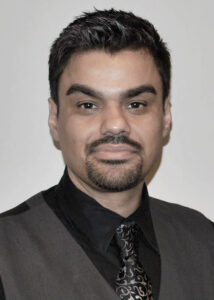
Ben Torres has served in a senior capacity on many boards, has led various initiatives, is a seminar speaker, and is pastor of Rev. 7:9 (Revelation 7:9), an intentionally diverse church community at Christ Church, Lake Forest, IL. Ben lends his creative expertise to Hispanic and African American organizations in the Chicagoland area by helping them develop strategic messaging in order to engage their target demographics effectively. He also is a member of ALPFA (Association of Latino Professionals For America), which works jointly with Loyola University Chicago’s Quinlan School of Business in cultivating future Latino leaders across all sectors of the global economy. Ben is an alumnus of Trinity Evangelical Divinity School. Before serving as pastor, Ben was a creative visionary for Hasbro Entertainment, directing a spectrum of iconic entertainment brands, such as Star Wars, Jurassic Park, Batman, and Pokemon, among many others. He has also developed various projects for Marvel Entertainment, Disney, and Mattel, among others. The crown jewel in his life is his 30 plus years marriage to his wonderful wife Gina and his 5 amazingly creative children.


